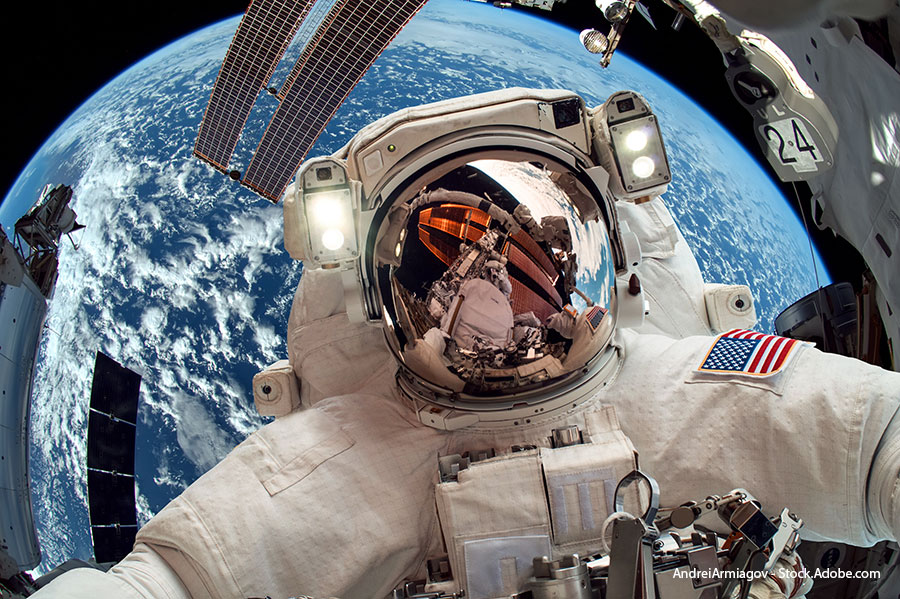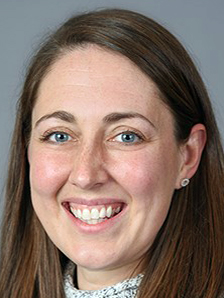 Recap of PHM plenary session presented by Lieutenant Colonel Jasmin Moghbeli
Recap of PHM plenary session presented by Lieutenant Colonel Jasmin Moghbeli
On May 25, 2017, a call came up on Jasmin Moghbeli’s phone from a Houston, Texas number which would change the course of her life. That call was from the National Aeronautics and Space Administration (NASA), inviting Moghbeli to join their next team of astronauts. Moghbeli recalled that, after accepting the offer and hanging up, she struggled to dial the phone to tell her parents because her hands were shaking.
Moghbeli was born in Germany to Iranian parents who left during the revolution. She was raised in the U.S. She grew up loving math and science and went to undergraduate school at Massachusetts Institute of Technology, where she states she first experienced failure in a meaningful way.
She later joined the Marine Corps, where she first realized she was a woman in a man’s world. This was followed by two years of Astronaut Candidate Training, where she learned about the ins and outs of the space station and how to be an astronaut. She mentioned that her road was not an entirely smooth one toward becoming an astronaut, but she believes her journey prepared her for her experience on the International Space Station. Moghbeli shared words of wisdom with hundreds of physicians at the Pediatric Hospital Medicine Conference 2024 in Minneapolis and drew parallels between the experience of astronauts and that of hospitalists.
Managing imposter syndrome
Our life experiences shape who we are. One individual’s experience is going to be completely different from another person’s. When Moghbeli was younger, she thought that because her perspective was different, that meant it was wrong and so would not speak up.
Over time, she started to realize that someone with a different perspective is valuable. Moghbeli also shared that during her 199 days on the International Space Station, she worked with 21 different people from 10 different countries on one of the most diverse teams ever assembled. If you have 50 people who are all alike approach the same problem, they will be limited. But if you have 50 very different people come together, their solutions are going to be diverse because of their varied experiences and perspectives.
Becoming a leader
Leadership is all about people. To be a good leader, you have to know the people you are leading, what drives them, and what makes them tick. The role of a leader is to create a safe and inclusive environment for your team: to really care about each and every one of them. When you can know them, care for them, and foster a great environment, your team will do anything for you.
Moghbeli also mentioned that when she initially signed up to be an astronaut, she was single and had no kids. She realized after marrying her husband that each person has a whole community behind them supporting what they are doing. Working with your support system, and being honest with them and yourself, helps you learn what next steps you take and how to approach obstacles together.
Dealing with uncertainty
Some of the hardest times in Moghbeli’s life were when she had an expectation that didn’t pan out the way she expected.
Moghbeli shares that she tries to frame her mindset so she can be okay with any outcome that might arise. This can be hard to do, but Moghbeli said that she can reflect and say that there have been times when she wanted one thing that didn’t work out, but the result ended up being the best thing for her. She related that this doesn’t mean closing the door on her dreams but trying to be present in the moment she was in and find joy in that moment, not just the future goal.
Be great at failing
If you try to do something meaningful, at some point along the way you will fail. You have to ask yourself when you fail if that thing you are aiming for is important enough. If it is, then you have to keep trying.
Moghbeli admitted that she failed many times throughout every step of her training toward becoming an astronaut. She shared that because of each of those failures, she is now “great at failing!” That experience has now bolstered her ability to be resilient.
Recognizing and overcoming burnout
Training to be an astronaut takes hours spread out over weeks to months and you can’t take a break for even a second or you may miss something vital to you or your team’s survival. This resulted in many weeks of working incredibly hard before going to the International Space Station. Once she arrived, she diligently communicated with the team there and on the ground about the necessity for breaks. Moghbeli and her team took breaks when they were scheduled and used them for true rest. She said that the burnout hit hardest when they landed back on Earth. She had expected a break but a lot of tests and debriefs were needed. She states that she worked hard to set boundaries for herself. She turned down things that were important or would tell her team a future time that she could do what they were asking.
Improving peace and unity on earth
Actual human connection is so important. Moghbeli shared her perspective that social media results in people acting differently than they would if those individuals were sitting down together. Unity is a problem that can’t be solved at a mass level. It must be solved via individual human connections. Moghbeli described how, when “don’t ask, don’t tell” was repealed, many individuals learned new things about team members they had worked with for years. But because of the relationships that Marines had built, it wasn’t hard for them to come together and support each other, because they knew and cared about one another. Moghbeli said that a similar approach can be used to address doubters. Engaging with large groups isn’t worth the effort, but true learning and change come in those one-on-one conversations you have. Space is one of the only places where many nations come together—a testament to what we can do when we work cooperatively. When you look down at the Earth from the International Space Station, you realize what a gift our planet is and how connected we all are. Now, when Moghbeli walks around outside, she notices the trees, the flowers, the sky, and the birds with a new set of eyes.
“We have a pretty spectacular view from down here too,” she said.
Key Points
- Experiencing meaningful failure can be an important step in how we are shaped and our ability to be resilient.
- Human connection is improved through one-on-one conversations and the ability to see each other and hear each other as individuals.
- Great leaders know the people they are serving, create a safe and inclusive environment, and really care about each individual on their team.

Dr. Peterson
Dr. Peterson is a med-peds hospitalist at Cincinnati Children’s Hospital Medical Center and the University of Cincinnati Health in Cincinnati.
Great article thanks for sharing it with us